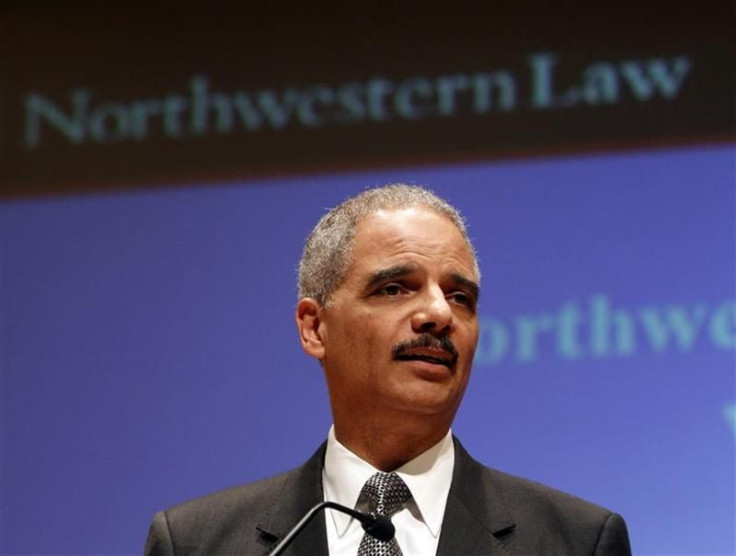Justice Department Defends Obama's Supreme Court Remarks [LETTER]

U.S. Attorney General Eric Holder Thursday defended President Barack Obama from a judge incensed over a comment about the U.S. Supreme Court taking an unprecedented, extraordinary step if the justices overturn the 2010 health care law.
That comment from Obama prompted Judge Jerry Smith of the Fifth Circuit Court of Appeals to give the U.S. Department of Justice attorneys, who were arguing for the government in a separate case on the health care law, an unusual homework assignment: hand in a three-page, single-spaced brief squaring away the remarks with the administration's stance on judicial review, a well-established legal doctrine since 1803.
Holder ignored Smith's request to include specific references to the presidents' statements, instead saying Obama was correct: the Supreme Court accords particular deference to lawmakers when they pass economic laws.
The power of the courts to review the constitutionality of legislation is beyond dispute, Holder said, detailing the cases establishing the court's authority. The president's remarks were fully consistent with the principles described herein.
In his first remarks since oral arguments on the Affordable Care Act ended last week, Obama, a former constitutional law professor, said he was confident the Supreme Court would not take the unprecedented, extraordinary step of throwing it out.
A day later, Obama was forced to clarify his remarks -- justices do throw out laws for violating the Constitution -- to say that the justices defer to Congress on laws passed under the broad power to regulate interstate commerce, like the health care law.
Throwing out the Affordable Care Act would bring the court back to a time when the justices routinely struck down laws passed in the Progressive Era and under President Franklin D. Roosevelt's New Deal agenda in the early 20th century, Obama argued.
So, we're going back to the '30s, pre-New Deal, Obama said Tuesday.
Obama's clarification, however, failed to persuade a federal judge in Texas. Smith was one of three appellate judges hearing a separate challenge to the health care law from physician-owned hospitals.
Smith said Obama's initial comments troubled a number of people who have read it as somehow a challenge to the federal courts ... or the appropriateness of the concept of judicial review.
A Justice Department attorney explained that Marbury v. Madison in 1803 established the judiciary's authority to examine and strike down laws, but that was unsatisfactory for Smith.
Holder indicated a displeasure with Judge Smith's unusual civics assignment, saying the government lawyer accurately described the Obama administration's position.
The department has not in this litigation, nor in any other litigation of which I am aware, Holder wrote, ever asked this or any other court to reconsider or limit long-established precedent concerning judicial review of the constitutionality of federal legislation.
© Copyright IBTimes 2024. All rights reserved.











